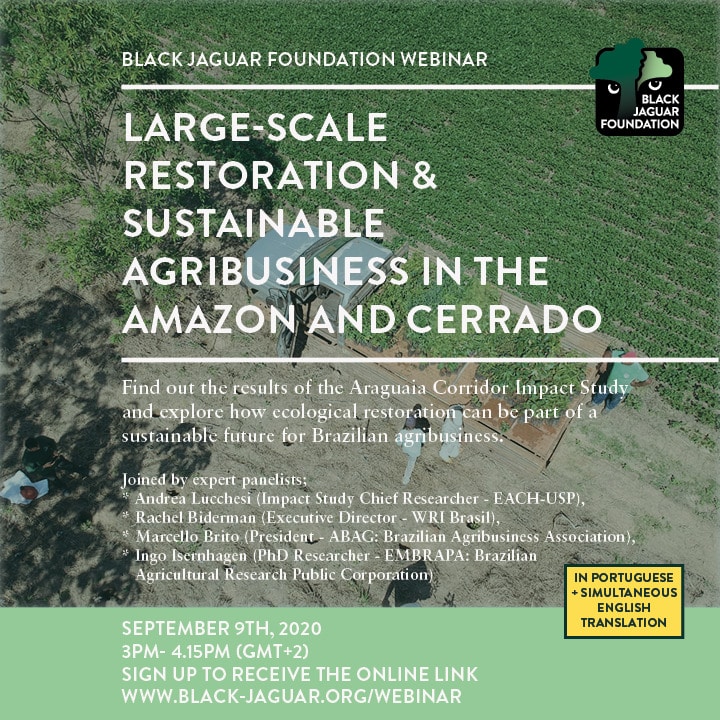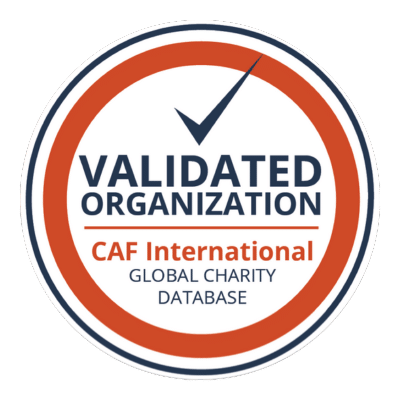On Wednesday 9th September the BJF hosted its first webinar!
At the start of this year, 11 internationally renowned scientists completed an in-depth IMPACT STUDY of the Araguaia Biodiversity Corridor and we are delighted to share the results with you!
During this webinar, we explored the results of the study and held a discussion around the impact for Brazil, and the world. In a year where deforestation in the country is set to reach an all-time high, we chose to focus on how ecological restoration can become part of a more sustainable future for Brazilian Agribusiness.

During the webinar we hear from Chief Researcher Andrea Lucchesi who provided a summary of the extensive impact study, before she was joined by expert panelists:
– Rachel Biderman – Executive Director, WRI Brasil
– Marcello Brito – President, ABAG (Brazilian Agribusiness Association)
– Ingo Isernhagen – Forest Conservation Researcher, EMBRAPA
Each provided a new perspective on the prospects and challenges associated with looking to large-scale restoration as a catalyst for changing how land use is approached in Brazil. You can see a summary of their points below:
Rachel Biderman
Rachel spoke about the experience of WRI with ecological restoration, highlighting the importance of having an economic revenue for the landowner. There must in general be benefits for local communities, products that they may take in a sustainable way from the newly restored forest.
Also, to enable a project the size of ours, there must be a huge investment in research and development, something BJF is already doing and that WRI invests in extensively. She noted the extensive knowledge base building in Brazilian civil society and the necessity to collaborate for a shared future.
Ingo Isernhagen
Ingo spoke about the challenge of restoring some of the Cerrado physiognomies, such as open grasslands, and how techniques must be improved yearly in order to have the best restoration possible. Going on to add that in the corridor region, there is a wide variety of landowner profiles, each one with a specific need (ecologically and economically). So, it is important to know how to approach each one of these profiles. Again all leading back to the need to conduct an in-depth analysis of each restoration site.
Marcello Brito
Marcello spoke about how the restoration agenda was, until very recently, a marginal topic for landowners. Now, that scenario has changed. But information still needs to be available for landowners, especially about the benefits they could get from ecological restoration. He also discussed how many people in the Amazon region never access the formal economy. It is hard for them to be “legal” because there’s no knowledge available, and no resources. One of the crucial points of value he sees in the work of the BJF, is the provision of this knowledge and resource base that is so far inaccessible for many landowners.
We are so grateful for all who participated, helped to explore a topic that has the potential to change the environmental landscape in Brazil, and beyond.
If you weren’t able to join us on the day, watch the recording here…
This recording will soon also be available with English subtitles, sign up here to receive this!




